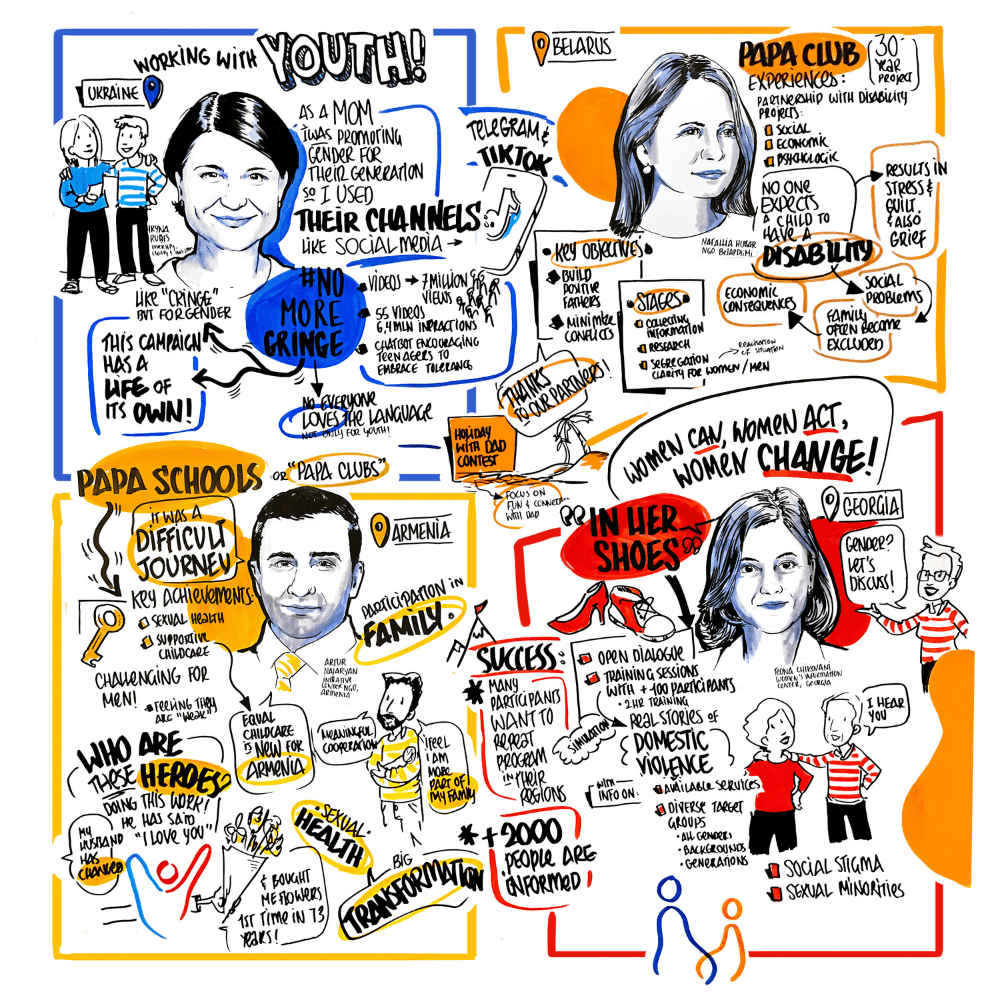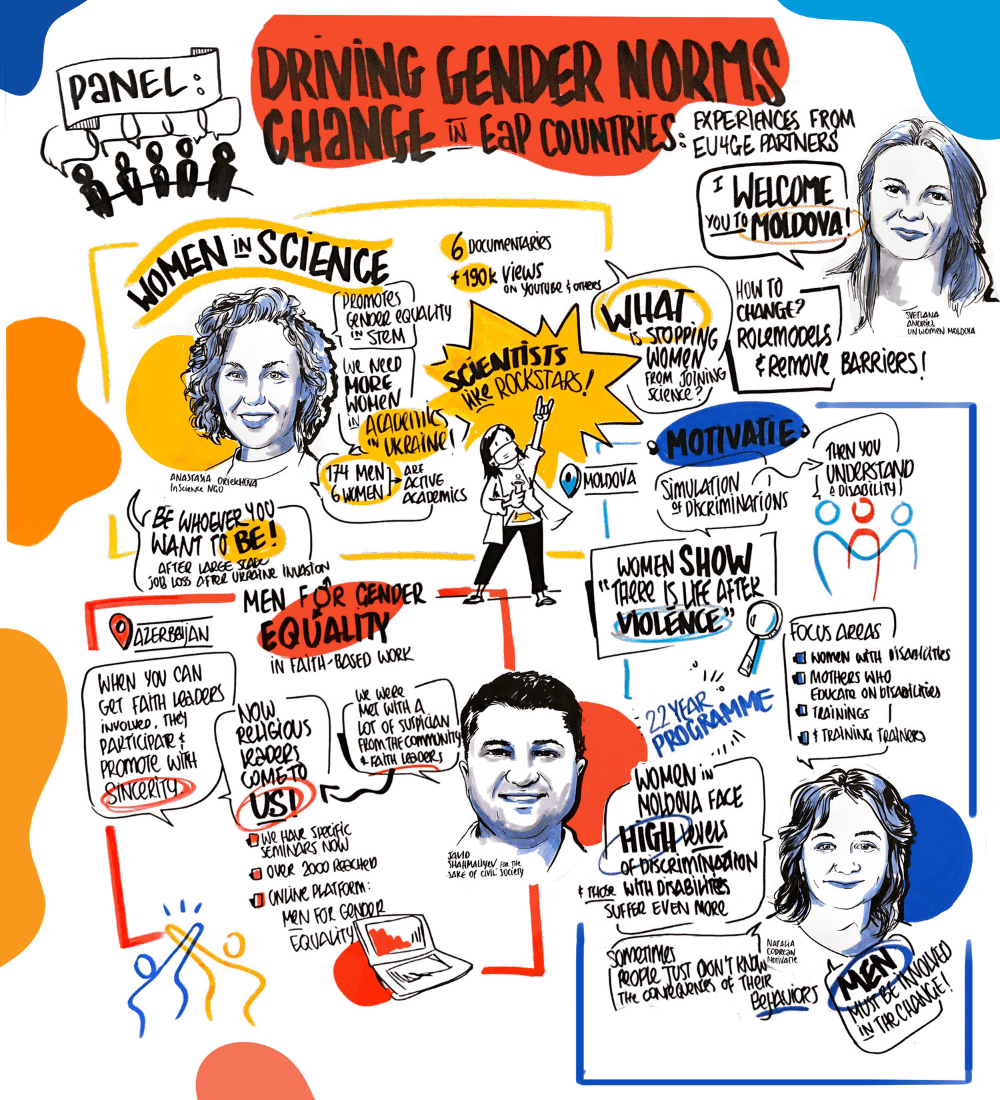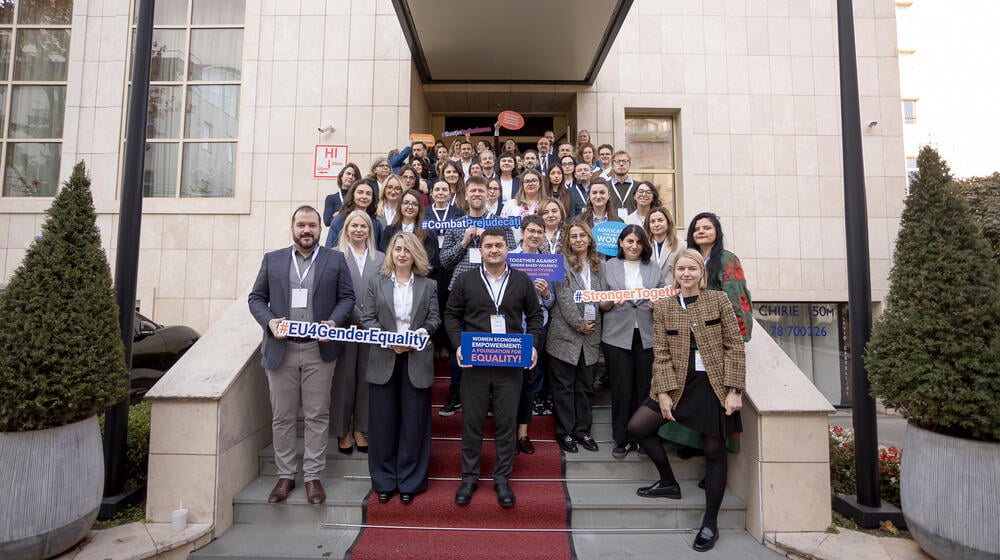“Raising awareness and changing attitudes are essential to break gender stereotypes and prevent violence. By engaging in open discussions about harmful traditions and stereotypes we can inspire the critical thinking and action needed for change,” said Teona Chikovani, Executive Director of the Women’s Information Center in Georgia.
Ms. Chikovani was one of 60 participants at the Conference of Civil Society Partners of the ‘EU 4 Gender Equality: Together against gender stereotypes and gender-based violence’ programme, which took place in Chisinau, Moldova from 29 to 31 October 2024. Representatives from a range of organizations came together to collaborate, share knowledge, drive meaningful change in gender norms, and address gender-based violence in the region.
“Civil society organizations are important partners for the EU to give voice to citizens' concerns, including disadvantaged and marginalized groups, and work to further democracy and human rights. Within the ‘EU 4 Gender Equality’ programme, they are essential partners for challenging gender norms and discriminatory behavior,” said Lena Karlsson, a Gender Expert and Advisor for the European Commission’s Directorate-General for Neighbourhood and Enlargement Negotiations (DG NEAR).
The conference brought together changemakers from Armenia, Azerbaijan, Belarus, Georgia, Moldova and Ukraine to exchange innovative tools and practical strategies, alongside their most successful initiatives. This included engaging men through programmes like the Fathers’ Schools, advocating for and with women with disabilities, collaborating with the private sector and faith-based organizations, addressing gender-based violence, and employing communication strategies to involve youth in dialogues focused on redefining gender norms.

“Gender stereotypes, norms and attitudes are underlying causes for all types of inequalities and discrimination faced by women. They are directly linked to the high prevalence of violence, unequal distribution of unpaid care work, pay gaps, and underrepresentation of women in decision-making positions,” said Belén Sanz Luque, the Regional Director for UN Women Eastern Europe and Central Asia. “We need to tackle gender stereotypes and norms to affect the roadblocks that hinder progress towards gender equality. I appreciate the ‘EU 4 Gender Equality’ programme’s commitment to continue learning and encourage participants to think outside the box about how we can push this agenda of transformation.”
Participants explored different approaches to changing social norms that place people’s needs and rights at the centre of the programmes. They highlighted the pivotal roles of politics and political institutions in facilitating progress and the significant influence of social movements in advocating for change. Additionally, discussions focused on the importance of collecting and analyzing data to measure the effectiveness of different interventions.
“At this conference, we reflected on and learned how changing gender norms are vital for gender equality,” said Gabriela Alvarez Minte, the Regional Gender Adviser for UNFPA’s Eastern Europe and Central Asia Regional Office.

Participants emphasized the importance of adopting a holistic approach to effectively address gender norms and stereotypes across diverse contexts, recognizing that these challenges vary not only by country but also by region. Building strong partnerships among civil society organizations, stakeholders and communities will be critical to amplifying impact and fostering a collective commitment to gender equality.
“As we move forward from this conference, it is essential that we focus on actionable recommendations provided by our civil society partners to drive meaningful change,” said Olga Osaulenko, Regional Manager of the ‘EU 4 Gender Equality’ programme.
This article was produced in the framework of the ‘EU 4 Gender Equality: Together against gender stereotypes and gender-based violence’ programme, funded by the European Union, implemented jointly by UN Women and UNFPA.
This article was produced with the financial support of the European Union. Its contents are the sole responsibility of UN Women and UNFPA and do not necessarily reflect the views of the European Union.


